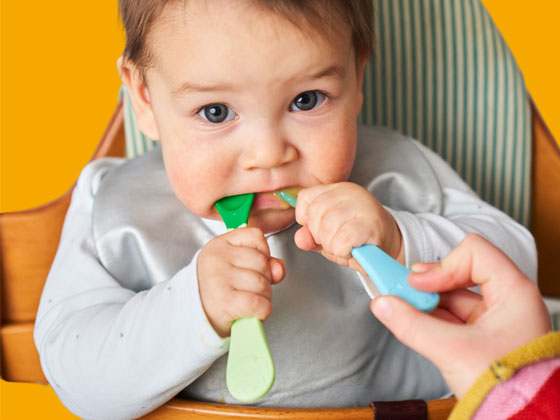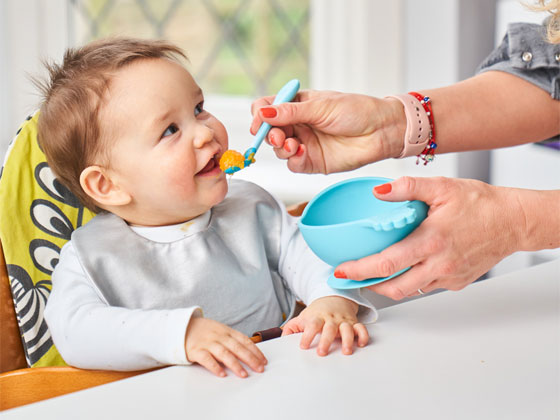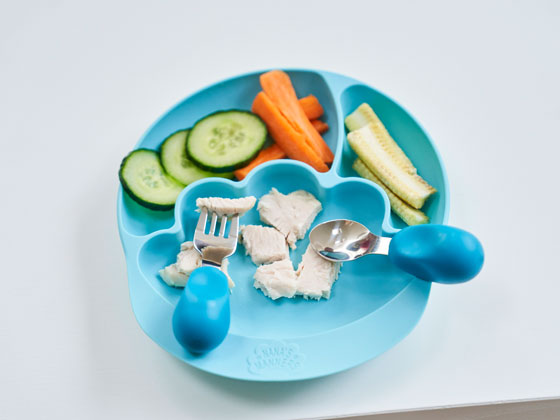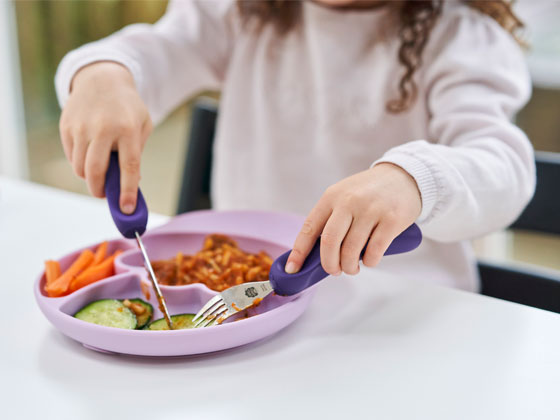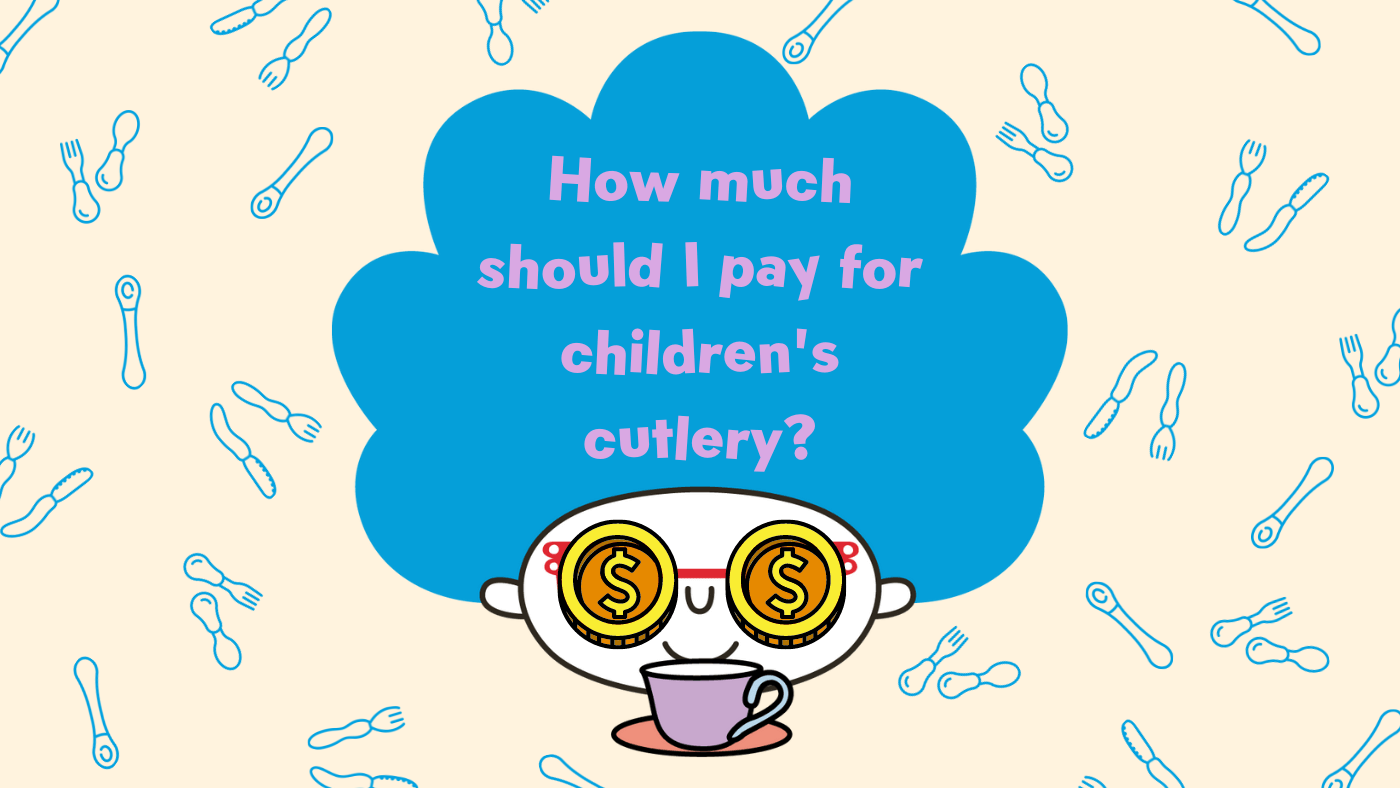If you are a parent or caregiver of an toddler with autism, you may be wondering whether they will be able to eat with utensils. While every child is unique, it is common for autistic toddlers to experience challenges with eating and feeding. Some may prefer to use their hands, while others may struggle with the sensory experience of using utensils.
Understanding the eating habits of autistic toddlers is an important aspect of caring for them. Nutrition is crucial for all children, but it can be especially important for those with autism, who may have a limited diet or difficulty eating certain foods. Additionally, feeding challenges can lead to stress and anxiety for both the child and their caregivers.
Key Takeaways
- Toddlers with Autism may experience challenges with eating and feeding, including using utensils.
- Nutrition is crucial for children with autism, who may have a limited diet or difficulty eating certain foods.
- Feeding challenges can lead to stress and anxiety for both the child and their caregivers.
Understanding Autism and Eating Habits
Autism Spectrum Disorder (ASD) is a developmental disorder that affects communication, social interaction, and behaviour. Children with ASD may have eating issues or feeding problems that can make mealtimes difficult for them and their families.
Feeding difficulties are common in autistic children, and they can manifest in various ways. For example, some toddlers with autism may have difficulty using cutlery, while others may refuse to eat certain foods or textures. Some may have a limited range of foods they are willing to eat, while others may overeat or under eat.
It is important to understand that these eating difficulties are not a choice or a result of bad parenting. They are a part of the autism spectrum and can be challenging for children with autism and their caregivers.
There are several reasons why toddlers with autism may have feeding difficulties. Sensory issues can play a significant role. For example, some autistic children may be hypersensitive to certain textures, tastes, or smells, while others may be hypo-sensitive and seek out strong flavours or textures.
Autistic children may also have difficulty with social interaction and communication, which can affect their eating habits. For example, they may have trouble understanding social cues around mealtimes or may not be able to communicate their needs or preferences effectively.
It is essential to work with a healthcare professional who understands the unique needs of children with autism to address feeding difficulties. They can help develop strategies to make mealtimes more comfortable and enjoyable for the child while ensuring they receive the necessary nutrients for healthy development.
In conclusion, feeding difficulties are common in autistic children, and they can manifest in various ways. It is crucial to understand that these difficulties are a part of the autism spectrum and not a result of bad parenting. Working with a healthcare professional who understands the unique needs of autistic children can help develop strategies to address feeding difficulties and ensure the child receives the necessary nutrients for healthy development.
Importance of Nutrition in Autism
As a parent or caregiver of an toddler with autism, you may have concerns about their nutrition and eating habits. Good nutrition is important for all children, but it can be especially important for children with autism. Here are some reasons why nutrition is important for autistic toddlers:
Healthy Eating Habits
Autistic toddlers may have limited diets and may be picky eaters. It is important to encourage them to try new foods and to offer a variety of foods from all the food groups. This will help them develop healthy eating habits that they can carry with them into adulthood.
Varied Diet
A varied diet is important for all children, but it is especially important for autistic toddlers. A varied diet can help ensure that they get all the nutrients they need to grow and develop properly. It can also help prevent nutritional deficiencies.
Food Groups
It is important to offer foods from all the food groups, including protein, vegetables, fruits, and grains. This will help ensure that your child gets all the nutrients they need to grow and develop properly.
Protein
Protein is important for growth and development. Offer your child a variety of protein-rich foods, such as meat, fish, eggs, beans, and nuts.
Vegetables and Fruits
Vegetables and fruits are important sources of vitamins, minerals, and fibre. Offer your child a variety of vegetables and fruits to help ensure that they get all the nutrients they need.
Trying New Foods
Encourage your child to try new foods, but be patient. It may take several attempts before they are willing to try a new food. Offer small amounts of the new food and praise them for trying it.
Pica
Pica is a condition where children eat non-food items, such as dirt, chalk, or paper. If you are concerned that your child has pica, talk to your doctor. They can help you develop a plan to address this issue.
In conclusion, good nutrition is important for all children, including toddlers with autism. Encourage your child to try new foods, offer a variety of foods from all the food groups, and talk to your doctor if you have concerns about your child's nutrition.
Challenges in Feeding Autistic Toddlers
Feeding toddlers with autism can be a challenging experience for parents and caregivers. Mealtime behaviour can be unpredictable and mealtime routines can be disrupted. Autistic toddlers may have difficulty with family dinner, and feeding them can be a struggle.
One of the most common challenges in feeding autistic toddlers is food selectivity. Many autistic toddlers are picky eaters and may only eat certain foods. They may be selective eaters and refuse to eat anything new. Fear of new foods and food refusal can be a significant issue.
Sensory aversions can also play a role in feeding difficulties. Autistic toddlers may have sensory issues that make certain foods unappealing or even intolerable. Sensory overload during mealtime can cause distress and anxiety, leading to food refusal.
Controlled eating can be another challenge. Autistic toddlers may have difficulty with portion control and may overeat or under-eat. Sensory experiences during mealtime can be overwhelming, leading to a lack of interest in food or a desire to eat too much.
It is essential to understand the sensory aspects of feeding for autistic toddlers. Sensory processing can affect how they experience food and how they respond to it. Sensory issues can make it difficult for them to tolerate certain textures, smells, or tastes.
In conclusion, feeding toddlers with autism can be a complex process that requires patience, understanding, and knowledge. Parents and caregivers must be aware of the challenges that come with mealtime and be prepared to adapt to their child's needs. With the right approach and support, feeding autistic toddlers can be a positive experience for both the child and their caregivers.

The Role of Texture and Taste
When it comes to eating with utensils, the texture and taste of food can play a significant role in whether or not an autistic toddler will use utensils. Some autistic toddlers may struggle with certain textures, such as soft or slimy foods, and may prefer crunchy foods like chips or crackers.
If your autistic toddler is struggling with utensils, it may be helpful to offer foods with a texture that they are comfortable with. For example, you could try offering foods that are easy to pick up with a fork or spoon, such as small pieces of cooked vegetables or fruits. Well designed children's cutlery will help significantly here.
In addition to texture, taste and flavour can also play a role in whether or not an autistic toddler will use utensils. Some autistic toddlers may have a strong preference for certain tastes, such as sweet or salty, and may be more likely to eat foods with those tastes.
If your autistic toddler is struggling with utensils, it may be helpful to offer foods with a taste that they enjoy. For example, you could try offering foods that are flavoured with their favourite spices or seasonings.
It's also worth noting that some autistic toddlers may have a preference for starchy foods, such as bread or pasta. If your toddler is struggling with utensils, it may be helpful to offer foods with a similar texture, such as rice or mashed potatoes.
Overall, the texture and taste of food can play a significant role in whether or not an autistic toddler will use utensils. By offering foods with a texture and taste that they are comfortable with, you may be able to help your toddler develop their utensil skills.
Medical and Dietary Considerations
When it comes to feeding autistic toddlers, there are a few medical and dietary considerations that parents and caregivers need to keep in mind. These considerations can have a significant impact on the child's ability to eat with utensils, as well as their overall health and wellbeing.
Medical Issues
Autistic toddlers may have a variety of medical issues that can affect their eating habits. Some common issues include gastrointestinal problems, chronic constipation, acid reflux, dysphagia (swallowing problems), allergies, and food intolerances. It's important to work with your child's doctor to identify and address any medical issues that may be impacting their ability to eat with utensils.
Medications and Supplements
Many autistic toddlers take medications and supplements to manage their symptoms. Some of these medications and supplements may have side effects that can impact appetite and eating habits. For example, some medications may cause nausea or stomach upset, while others may increase appetite and lead to weight gain. It's important to work with your child's doctor to monitor any side effects and adjust medications and supplements as needed.
Dietary Restrictions
Some toddlers with autism may follow a casein-free diet, which eliminates dairy products. This diet is based on the theory that dairy products can exacerbate autism symptoms. While there is no universally accepted scientific evidence to support this theory, some parents and caregivers may choose to eliminate dairy products from their child's diet. It's important to work with a qualified healthcare professional to ensure that your child is getting all the nutrients they need, regardless of any dietary restrictions.
Weight Management
Some autistic toddlers may struggle with weight management, either due to medication side effects or a limited diet. It's important to work with your child's doctor to monitor their weight and ensure that they are getting all the nutrients they need. Encouraging physical activity and providing healthy, nutrient-dense foods can help support healthy weight management.
In summary, there are several medical and dietary considerations that can impact an autistic toddler's ability to eat with utensils. Working with your child's doctor and a qualified healthcare professional can help ensure that your child is getting all the nutrients they need and is on track for healthy development.
Understanding and Addressing Food Selectivity
If you have an autistic toddler, you may have noticed that they are picky eaters. Autistic children are more likely to experience feeding problems than their peers. Food selectivity, which involves eating only a limited variety of foods, is the most commonly reported feeding problem in autistic children.
Food selectivity can be caused by sensory anomalies, which can make certain textures and tastes unappealing to autistic children. Additionally, children with autism may have a preference for sameness and routines, which can make it difficult for them to try new foods. They may also have a heightened sensitivity to food smells, which can make certain foods unappetising.
One approach to addressing food selectivity is food chaining. Food chaining involves gradually exposing your child to new foods that are similar to the foods they already eat. For example, if your child only eats chicken nuggets, you could gradually introduce them to chicken tenders, then breaded chicken, and eventually grilled chicken. This gradual exposure can help your child become more comfortable with new foods.
Rewards can also be an effective way to encourage your child to try new foods. You could offer a small reward, such as a sticker or a favourite toy, for trying a new food. Over time, your child may become more willing to try new foods without the need for rewards.
Patience is key when addressing food selectivity. It may take your child several tries before they become comfortable with a new food. It's important to avoid pressuring your child to eat a new food, as this can create a negative association with the food.
Rituals can also play a role in addressing food selectivity. For example, you could make mealtime a consistent routine, with the same plates, utensils, and seating arrangements. This can help your child feel more comfortable and relaxed during mealtime.
In conclusion, food selectivity is a common feeding problem in autistic toddlers. Sensory anomalies, a preference for sameness, and a sensitivity to food smells can all contribute to food selectivity. Food chaining, rewards, patience, and rituals can all be effective approaches to addressing food selectivity.
The Role of Professionals in Feeding Autistic Toddlers
Feeding problems are common in toddlers with autism, and they can pose a significant challenge for parents and caregivers. Fortunately, there are professionals who can help you and your child overcome these issues. Here are some of the professionals who can play a role in feeding autistic toddlers:
Occupational Therapist
An occupational therapist can help your child develop the skills they need to eat with utensils. They can work with your child to improve their hand-eye coordination, fine motor skills, and sensory processing abilities. They can also recommend adaptive equipment, such as special utensils, to make eating easier for your child.
Feeding Therapist
A feeding therapist can help your child overcome their feeding difficulties. They can evaluate your child's feeding skills and develop a treatment plan tailored to their needs. They can also work with you to create a positive feeding environment and teach you strategies to encourage your child to eat.
Behavioural Therapist
A behavioural therapist can help your child develop positive behaviours around food. They can work with your child to overcome picky eating, food aversions, and other feeding problems. They can also teach you strategies to manage challenging behaviours at mealtimes.
Dietitian/Nutritionist
A dietitian or nutritionist can help ensure your child is getting the nutrients they need. They can evaluate your child's diet and recommend changes to improve their nutrition. They can also work with you to create a meal plan that meets your child's specific needs.
Specialists
If your child has specific medical issues related to feeding, such as acid reflux or swallowing difficulties, you may need to see a specialist. Your child's doctor can refer you to a specialist who can diagnose and treat these issues.
Occupational Therapy
Occupational therapy can be helpful for children with autism who have sensory processing issues. Sensory processing can impact a child's ability to eat certain foods, so working with an occupational therapist can be beneficial.
Autism Speaks Autism Treatment Network
The Autism Speaks Autism Treatment Network is a network of hospitals and clinics that specialise in treating children with autism. They offer a multidisciplinary approach to care, which can be helpful for children with feeding difficulties.
Dental Exam
It's important to have your child's dental health evaluated regularly. Children with feeding difficulties may be at higher risk for dental problems, so it's essential to have them checked regularly.
In conclusion, feeding problems can be a challenge for parents and caregivers of autistic toddlers. However, there are professionals who can help you and your child overcome these issues. Occupational therapists, feeding therapists, behavioural therapists, dietitians, nutritionists, specialists, occupational therapy, the Autism Speaks Autism Treatment Network, and dental exams can all play a role in helping your child develop positive feeding behaviours and overcome their feeding difficulties.
Practical Tips for Mealtime
When it comes to mealtime with an autistic toddler, there are a few practical tips that can help make the experience more enjoyable for both you and your child. Here are some suggestions to consider:
Environment
Creating a comfortable and distraction-free environment can help your child focus on eating. Consider the following:
- Use a designated eating area that is free from toys and other distractions.
- Use a chair that is the right size for your child and provides good support.
- Use a plate with dividers to separate different types of food.
- Use a non-slip mat or plate to prevent spills.
Snacks
Offering snacks throughout the day can help ensure that your child is not too hungry during mealtimes. Here are some snack ideas:
- Cut-up fruit or vegetables
- Cheese cubes
- Crackers or rice cakes
- Yogurt
Cutlery
Many autistic toddlers may struggle with using utensils. Here are some tips to help your child with cutlery:
- Use utensils with a wider handle for easier gripping.
- Use utensils with a curved handle to help with hand positioning such as Nana's Manners Stage 2 Toddler Cutlery, designed for easier gripping.
- Use utensils with a deeper scoop to help with scooping food.
- Allow your child to practice with utensils during playtime.
Social Story
A social story is a tool that can help prepare your child for mealtime. Here's how to create a social story:
- Write a short story about mealtime, including what your child can expect and how they should behave.
- Use pictures or photos to illustrate the story.
- Read the story with your child before mealtime to help them understand what to expect.
Motor Deficits
Many autistic toddlers may have motor deficits that can make eating difficult. Here are some tips to help:
- Use a straw cup or sippy-cup to help with drinking.
- Use a spoon with a deeper scoop to help with scooping food.
- Allow your child to use their hands to eat if they are more comfortable with this.
Biting
Some autistic toddlers may bite during mealtime. Here are some tips to help prevent biting:
- Offer a chew toy or teething ring before mealtime to help with oral stimulation.
- Use a visual timer to help your child understand how long they should be eating for.
- Use positive reinforcement, such as praise or a reward, when your child eats without biting.
Remember, every child is different, and what works for one child may not work for another. Be patient, and keep trying different strategies until you find what works best for your child.
Conclusion
In conclusion, toddlers with autism may struggle with using utensils during mealtimes. This can be due to sensory issues, motor skill difficulties, or behavioural challenges. However, with proper support and intervention, many autistic toddlers can learn to use utensils effectively.
It is important to understand that each autistic toddler is unique and may have different needs and preferences when it comes to mealtimes. Some may benefit from using adaptive utensils or having a visual schedule to help with the routine. Others may need to work on developing their fine motor skills through occupational therapy.
It is also important to recognise that some autistic toddlers may have limited food choices and preferences, which can further impact their ability to use utensils. It is essential to work with a healthcare professional to ensure that their nutritional needs are being met and that any feeding difficulties are addressed.
Overall, while using utensils may be a challenge for some autistic toddlers, it is important to provide them with the necessary support and resources to help them develop this skill. With patience and understanding, many autistic toddlers can successfully learn to use utensils during mealtimes.
Frequently Asked Questions
How can I help my autistic toddler learn to use utensils?
Learning to use utensils can be a challenge for autistic toddlers. You can help by providing them with utensils that are easy to grip and hold. You can also demonstrate how to use them and encourage your child to practice. Be patient and provide plenty of positive reinforcement.
What are some tips for feeding an autistic toddler?
Feeding an autistic toddler can be a challenge. It's important to be patient and understanding. Try to create a calm and quiet environment during meal times. Offer a variety of foods and textures, but don't force your child to eat anything they don't want to. You can also try using visual aids, such as pictures of different foods, to help your child understand what they are eating.
What is Nana's Manners Cutlery and how can it help my child with autism?
Nana's Manners Cutlery is a range of utensils designed for all children, but they help children with disabilities, including autism, even more so. These utensils have features such as ergonomically designed handles and carefully designed blades, making them easier to grip and use. They can help your child with autism to develop their fine motor skills and gain more independence during meal times.
What are some common eating difficulties that autistic toddlers may experience?
Toddlers with autism may experience a range of eating difficulties, including being picky eaters, having sensory issues with certain textures or flavours, and struggling with using utensils. They may also have difficulty sitting still during meal times or may become upset if their routine is disrupted.
Are there any specialised utensils that can assist autistic toddlers with eating?
Yes, there are specialised utensils that can assist all toddlers, including those with autism in eating. Nana's Manners Cutlery, as mentioned above, provides inclusive cutlery that can be used by all children. These utensils can help your child to gain more independence and improve their eating skills.
What strategies can I use to encourage my autistic toddler to eat a wider variety of foods?
Encouraging your autistic toddler to eat a wider variety of foods can be a gradual process. Start by introducing new foods in small amounts and offering them alongside familiar foods. You can also involve your child in meal preparation and make mealtimes a positive and enjoyable experience. It's important to be patient and not to force your child to eat anything they don't want to.

